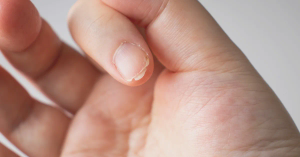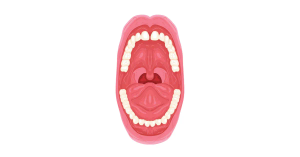When it comes to a bright, confident smile, many people are focused on having pearly white teeth. However, the natural color of teeth isn’t always a pristine white. In fact, the true shade of teeth varies from person to person based on several factors like genetics, enamel thickness, and lifestyle choices. Understanding what a “normal” tooth color is and how to maintain it can help you take better care of your smile.
What is the Natural Color of Teeth?
Teeth aren’t naturally pure white. The natural color of healthy teeth is a range of off-white shades, usually with a slight yellowish tint. This is due to the dentin, a layer beneath the enamel, which has a naturally yellow color that can show through the translucent enamel. Here are some key factors that influence the natural shade of your teeth:
Just like hair and skin color, the natural color of your teeth is partly determined by your genetics.
• Enamel Thickness: Thicker enamel appears more opaque, making the teeth look whiter. Conversely, thinner enamel reveals more of the dentin, causing teeth to appear yellower.
• Age: Over time, enamel naturally wears down, making teeth appear darker or more yellow due to the increased visibility of the dentin underneath.
What Affects Tooth Color Over Time?
Even if your teeth start out a certain shade, lifestyle and health factors can lead to discoloration. Some common culprits include:
1. Dietary Habits: Frequent consumption of tea, coffee, red wine, and certain fruits can stain the teeth.
2. Smoking: Tobacco use leads to yellow and brown stains on the teeth.
3. Poor Oral Hygiene: Not brushing or flossing regularly allows plaque buildup, which can cause yellowing.
4. Aging: As mentioned, enamel thins with age, causing a more pronounced yellow hue.
5. Medications: Certain antibiotics, such as tetracycline, or conditions requiring frequent use of antihistamines, can cause tooth discoloration.
How to Maintain and Enhance the Natural Color of Your Teeth
While you may not be able to change the genetic aspects of your tooth color, you can certainly maintain or enhance their natural appearance with these tips:
• Proper Oral Hygiene: Brushing twice a day, flossing, and using an antibacterial mouthwash help prevent plaque buildup and stains.
• Limit Staining Foods and Drinks: Reduce consumption of beverages like coffee and tea. If you do indulge, rinsing with water immediately afterward can help prevent stains.
• Quit Smoking: Not only does smoking harm your overall health, but it also severely affects the color of your teeth. Quitting can prevent further discoloration.
• Regular Dental Cleanings: Professional cleanings help remove surface stains and prevent tartar buildup, which can contribute to tooth discoloration.
Common Myths About Tooth Color
Many people have unrealistic expectations about the whiteness of their teeth, often driven by social media and the promotion of overly whitened smiles. Here are some myths to watch out for:
• Myth 1: Whitening Products Can Restore Natural White Teeth
While over-the-counter products can help remove stains, they do not change your natural tooth color. It’s important to consult a dentist before using any whitening treatment.
• Myth 2: Whiter Teeth are Healthier
The color of your teeth is not a direct indication of oral health. Healthy teeth can range from white to yellowish in color.
Conclusion
Understanding the natural color of your teeth and the factors that influence their shade can help set realistic expectations for your smile. While no one’s teeth are naturally bright white, maintaining good oral hygiene and healthy lifestyle habits can keep your teeth looking their best. Remember, a healthy smile is not just about appearance but about taking proper care of your oral health.
To keep your teeth strong, consult your dentist regularly and embrace habits that preserve your natural tooth color rather than aiming for artificially white teeth.









